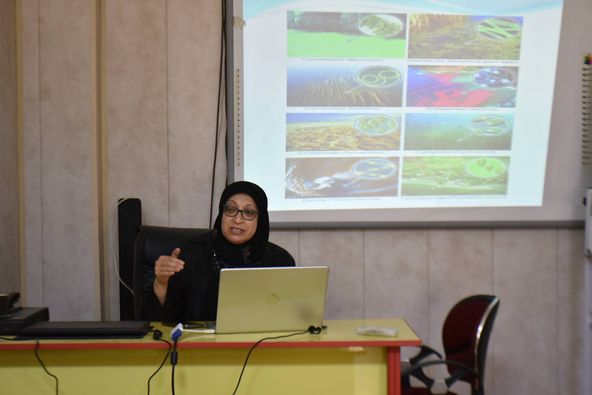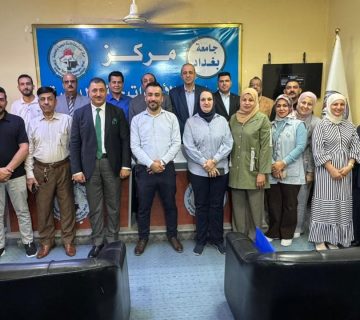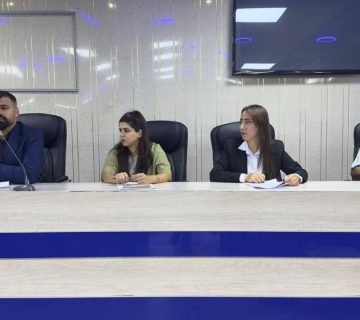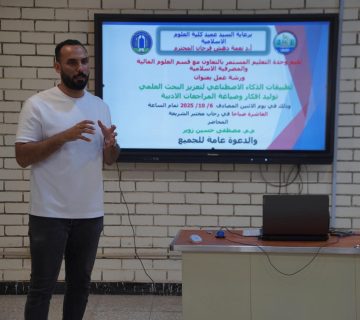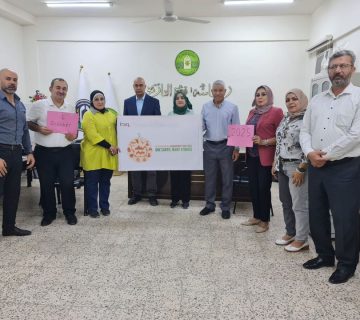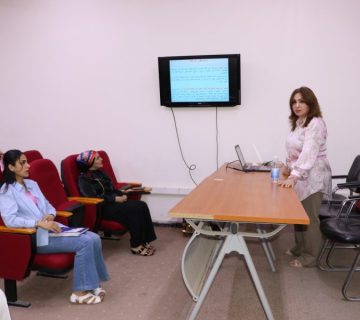The College of Science for Women, through its Continuing Education Unit and in collaboration with the Department of Biological Sciences, held a workshop titled Algal Toxins: Their Presence, Nature, and Environmental Impact.
The workshop aimed to introduce algae, their types, and their natural habitats, along with the toxins they produce and the associated environmental risks. It highlighted how algal blooms can lead to drinking water contamination and create hypoxic dead zones, negatively impacting fish and other aquatic species. Additionally, it addressed phosphorus pollution as a primary driver of biodiversity loss and the degradation of ecosystems essential to human life. The workshop also covered methods for detecting algal toxins and strategies for managing and eliminating them.


